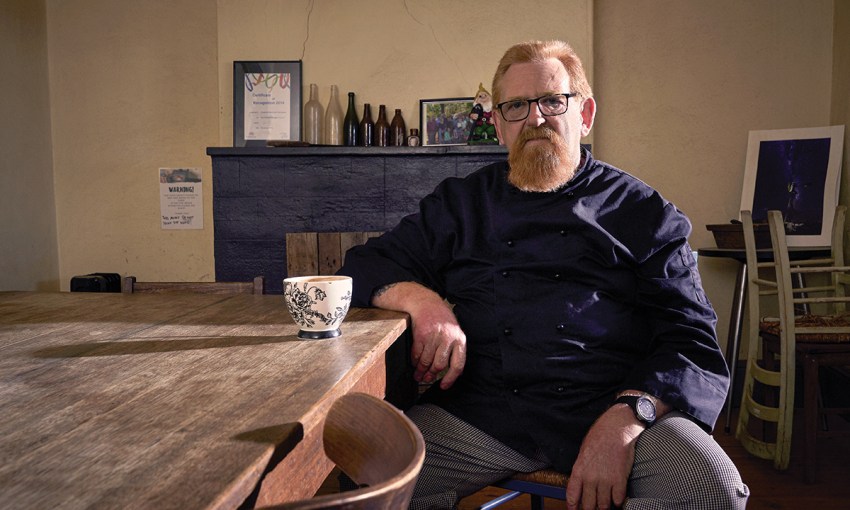Blink and you really will miss it, but Cradock, its people and its pub are worth keeping your eyes wide open for.
Country cooking with Chef Bluey
It’s that quiet time between lunch and dinner at the Cradock Hotel and chef Bluey melts into a bar stool out the front; a well-deserved break after a busy service.
Bluey’s job is done, for the next few hours at least, and he sips at a cup of tea as he looks out to the tiny town in the Flinders Ranges that he calls home.
“I came here for three months five years ago,” Bluey says. He’s slightly drowned out by the occasional passing of a car or caravan along RM Williams Way, which becomes Main Street for a matter of metres where the pub sits.
Truthfully, there’s not a whole lot to look at, but that’s part of the draw. The biggest thing in this little town might just be the “Big Akubra” across the road from the pub.
The town consists of a lovingly tended-to war memorial, a gorgeous old church, the “Cradock Pool” – an inflatable Kmart buy – and the pub.
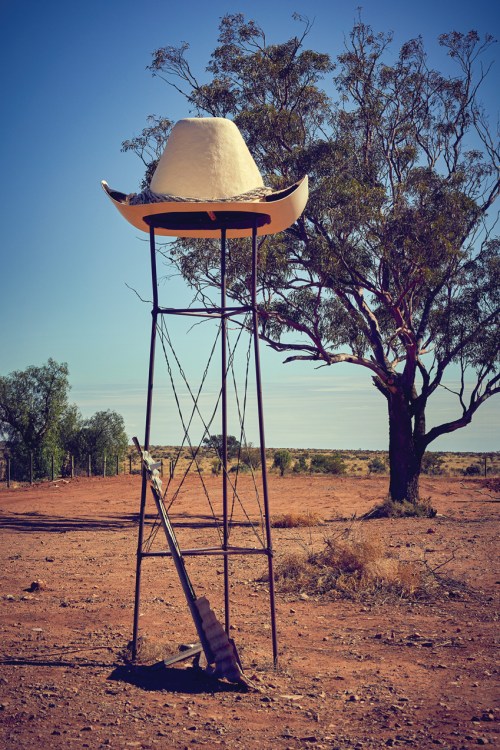
Walking in to the watering hole, the former ladies’ parlour sits to the right, hinting at its origins in the 1880s. When the farmers would visit with their families back in those days, the men would drink up, while the women and children enjoyed a respectable cup of tea and sandwich, away from the heavy drinking.
The walls are covered in markers of time; the official photos of old local sporting teams and the barely-changing facade of the pub over the years.
In the kitchen, Bluey runs a tight ship – a result of his military background. He’s worked in military kitchens all over the country and for temp agencies.
“I’ve done everything from mining camps and roadhouses to pub bistros and fine dining,” he says.
“There’s a real cross section because you have to move around and you’ve got to do whatever you’re presented with. Once my kids moved out of home and I was able to travel around, it was a second lease on life.”
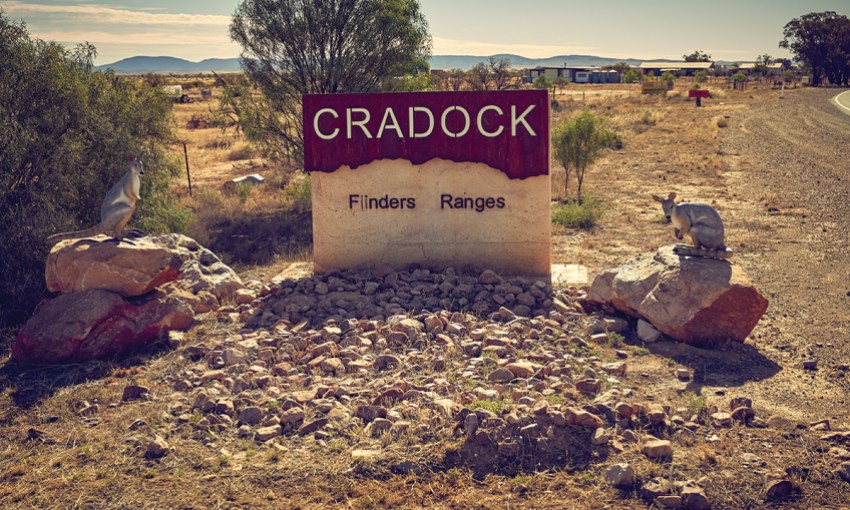
Bluey’s children and grandchildren are all in Orange, where he lived for a while when he wasn’t travelling. It was there that he got into viticulture and found himself in South Australia when he came to McLaren Vale to make wine.
Having been out of cooking for some time while making wine, Bluey wanted some recent experience to put on his resume. The intention was to get the few months under his belt, look to retirement and then do the odd tourist season here and there. That was five years ago.
“Now I’ve got a block down the road and I’m about to build on it. This is where I’ll retire and it’s the last full-time job I’ll ever have,” Bluey says.
“I’ve done a lot of remote work and in a lot of remote places; if you weren’t born there or if you haven’t been there for 40 years, you’re an outcast. But from the minute I got here, this was a very warm, welcoming and genuine community.
“There’s no hustle, there’s no bustle. There’s no crime.
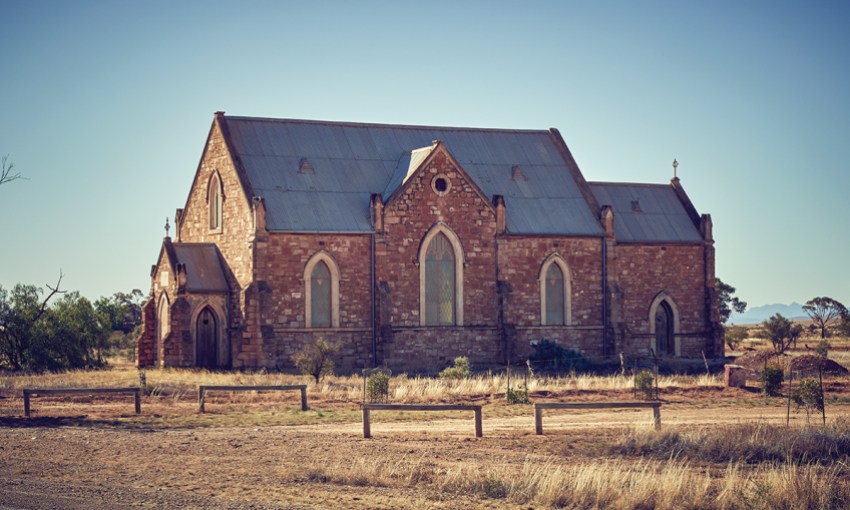
“I’ve never worked in a pub where I’ve never seen a fight, until I came here. The only time the police come here is when they stop for lunch.”
As he sits under the shade of the pub, Bluey gestures across the road.
“Those are all the transients; we’re on this side. This is Cradock Heights,” he laughs.
From here – undoubtedly the best seat in town – you can look left and right and see all of Cradock, but even in Bluey’s five years here, it’s transformed.
Across the road, neat plots are squared off with fencing. Bluey points to each one, remarking what’s to become of them. There are a few weekenders going up, an empty shed converted into a beautiful cabin and an old home that’s in the process of being renovated into a bed and breakfast by the owners of a local station.

Cradock is a town of 13 permanent residents – eight of them live in the pub, including Bluey. However, despite the tiny population, the kitchen runs hot.
Shearers from about 20 nearby stations keep the orders coming and the beer tap pouring. There are the few residents, of course, but 90 per cent of the Cradock’s clientele are tourists.
Bluey has an apprentice helping him out now but, while he was working solo, he churned out 1400 meals in 10 days over Easter. Then there were 180 walk-in lunches on an October long weekend, and he had to turn 60 people away.
It’s not the kind of place you want to be turned away from, and not just because there aren’t a whole lot of other nearby options.
You’d be forgiven for perhaps being slightly apprehensive about the food out here in the middle of nowhere, but the dishes Bluey turns out are nothing less than impressive.
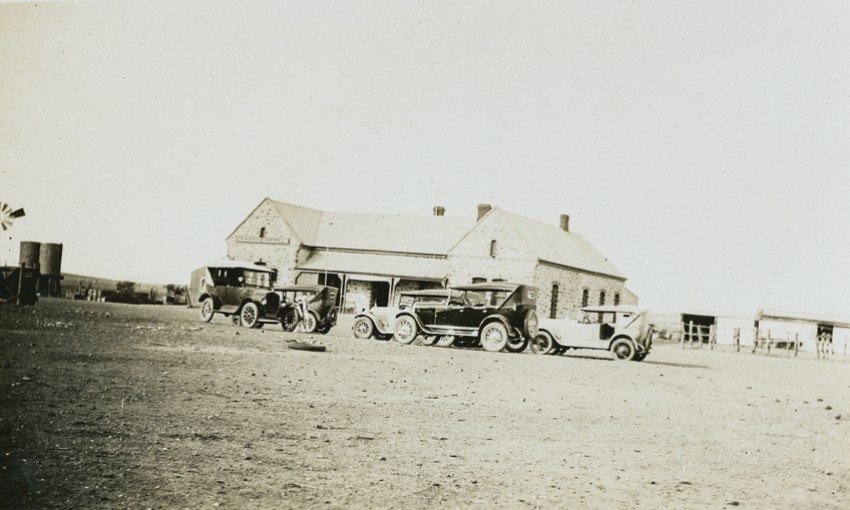
Bluey, whose real name is David McDonald, scratches at his bright red hair – a gift of his Scottish ancestry – as he chats about the food he produces.
From this outback pub, Bluey demands excellence of his carefully curated list of suppliers and works with the philosophy that good ingredients are key.
“We don’t try to do fine dining by any means, but we buy very good produce and we treat it simply,” he says.
“And we do everything, down to blending our own seasoning for the chips. We make our own tartare, salad dressing, bake our own pies and crumb our own schnitzel. Our barramundi is wild caught and our rump steak is 100-day grain fed yearling. I’m out here in the middle of nowhere but because I’ve got good suppliers, this is the best barramundi I’ve had in 30 years. And nobody gets a small feed.”
With full autonomy in the kitchen, Bluey’s pretty happy with life in Cradock. Over summer, the pub shuts down for 11 weeks – the tourists dry up with the heat.
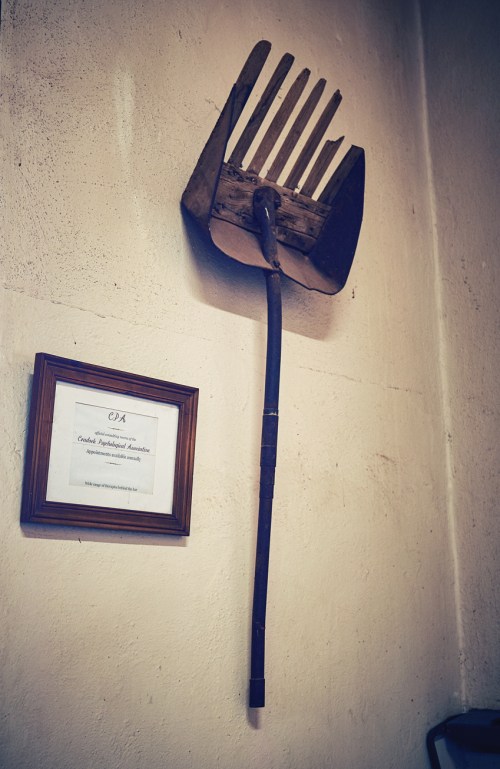
“I go to the Eyre Peninsula and go fishing; go to the Coorong. I visit the grandkids every year.”
At the moment, Bluey’s busy preparing to build on his land, which he “purchased” with a gentleman’s handshake.
The partner of the previous owner of the pub had a cousin who had bought the Carrieton Hotel and needed help renovating the kitchen.
“I designed his whole kitchen – spent more than $70,000 of his money, but it’s a beautiful kitchen that any chef would want to walk into,” Bluey explains.
“He had this block of land for sale up here and I rang him and asked what he wanted for it. He said, ‘For all the help you’ve been, I’ll give it to you if you just pay the conveyancing.’”
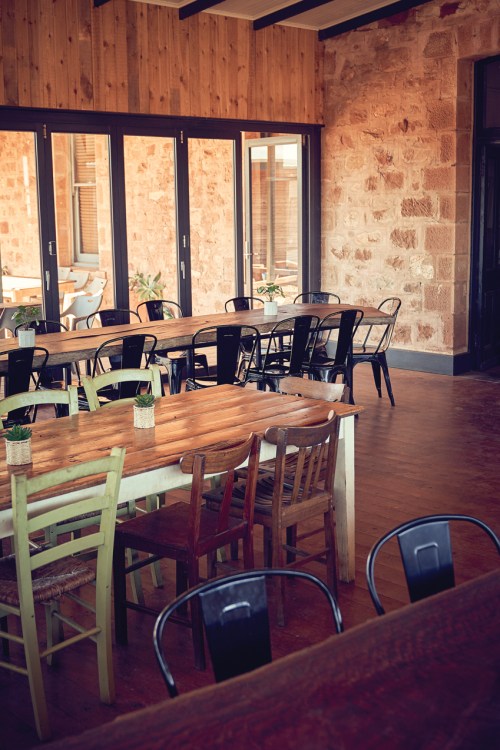
A shipping container with Bluey’s possessions sits on the land, which will be graded with the help of a local station owner with earthmoving equipment.
On Bluey’s windowsill sit little pots of cuttings he’s propagating for his future garden and he plans to be off-grid with solar panels and a big rainwater tank. It’s not a bad place to retire; the rates on the plot are just $168 a year.
“This place is a gem. A little slice of paradise.”
Bluey might be new to the town, but he speaks about the area’s history with respect. It’s a former cropping town that fell on hard times with the drought.
Dotted along Main Street are stones fixed with plaques telling anyone who stops to read them about the buildings that once stood there; a general store, service station, bank, post office, another pub and churches.
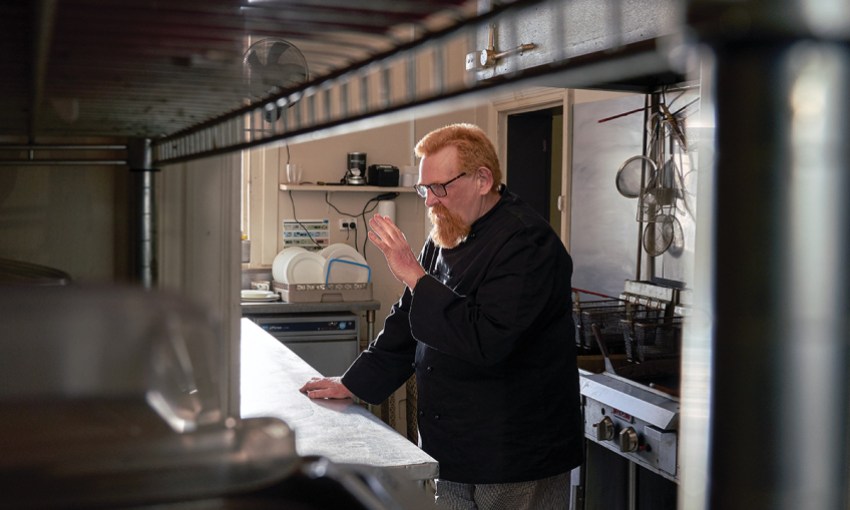
“They went through some boom times with the cropping and then went through some bad, bad times. There was a period where everything fell apart while they converted to merinos.”
A few more cars whoosh past the red-tinged scenery and the town that’s slowly rebuilding itself.
Now that Bluey’s tea is empty, he’s off to take a nap before dinner service.
Next time you’re in the Flinders, make sure you don’t just drive past this little town that’s more than it seems. Park yourself outside the Cradock Hotel – just make sure you book first.
This article first appeared in the August 2022 issue of SALIFE magazine.



